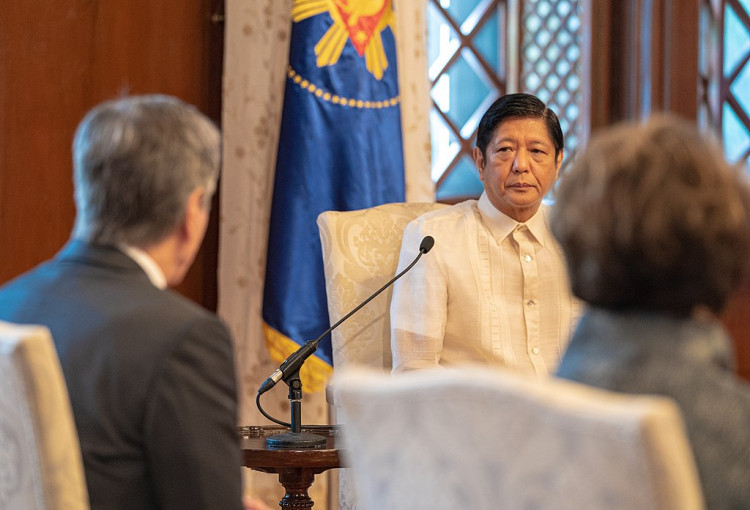When U.S. Vice President Kamala Harris meets with President Ferdinand Marcos Jr. on Monday, Nov. 21, tensions over Taiwan are expected to surface.
Because of its geographic location, the Philippines is essential to U.S. plans to prevent and respond to any Chinese attack on Taiwan, which China claims as its own.
The Philippines is the closest treaty ally to Taiwan among the five U.S. treaty allies in the Indo-Pacific, with its northernmost land mass, Luzon, only 200 kilometers away.
Five years after gaining independence, in 1951, the Philippines, a former U.S. territory, formally allied with the U.S. It was home to some of the biggest American overseas outposts during the Cold War, locations that were essential to the U.S. battles in Korea and Vietnam.
In the 1990s, Philippine nationalism compelled Washington to leave those, but recently, the partners have worked together in the fight against terrorism and in reaction to increasing Chinese military pressure in the South China Sea, where the Philippines has competing claims.
After President Joe Biden and Marcos met twice and Secretary of State Antony Blinken traveled to Manila in August, Washington has carefully courted Marcos.
Luzon is of great interest to the U.S. Army, in particular, as a potential location for rocket, missile, and artillery systems that could be used to counter an amphibious invasion of Taiwan, according to experts cited by Reuters, including Randall Schriver, who served in the Trump administration as the top Pentagon official for East Asia.
After a tumultuous six-year era of relations under President Rodrigo Duterte, who desired closer connections with China, he claimed that the political climate for increased military access appeared to be strengthening under Marcos.
The two sides have resumed work on an Enhanced Defense Cooperation Agreement (EDCA) that was stalled under Obama's presidency. The EDCA permits the U.S. access to Philippine military bases for joint training, equipment pre-positioning, and the construction of facilities such as runways, fuel storage, and military housing, but not for a permanent presence.
It is unknown to what extent the Philippines would allow its territory to be utilized to defend Taiwan. In September, Manila's ambassador to Washington, Jose Manuel Romualdez, told Reuters that the Philippines would only allow U.S. forces to use its facilities in the case of a Taiwan confrontation "if it is important for us, for our own security."
Given its proximity to the island and its treaty responsibilities to the U.S., Southeast Asia analyst Gregory Poling of the Center for Strategic and International Studies in Washington says it would be extremely difficult for the Philippines to maintain neutrality in a Taiwan conflict.
Taiwanese refugees would most likely end up there, and any Chinese onslaught would put the island's 150,000 Filipino population in peril.
"They have commitments to the Americans under the alliance," Poling said. "So if they want American support in the South China Sea, the Americans will expect Philippine support on Taiwan."






